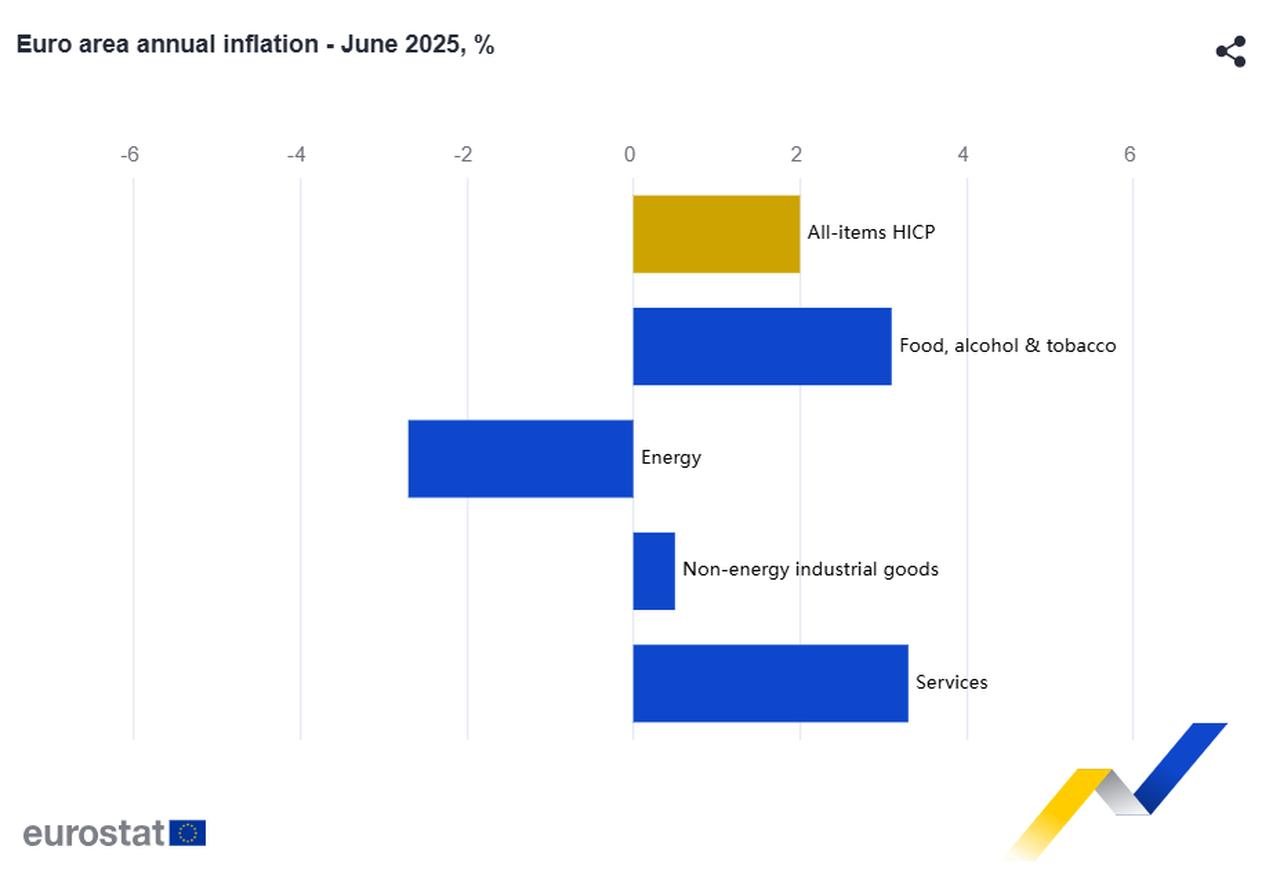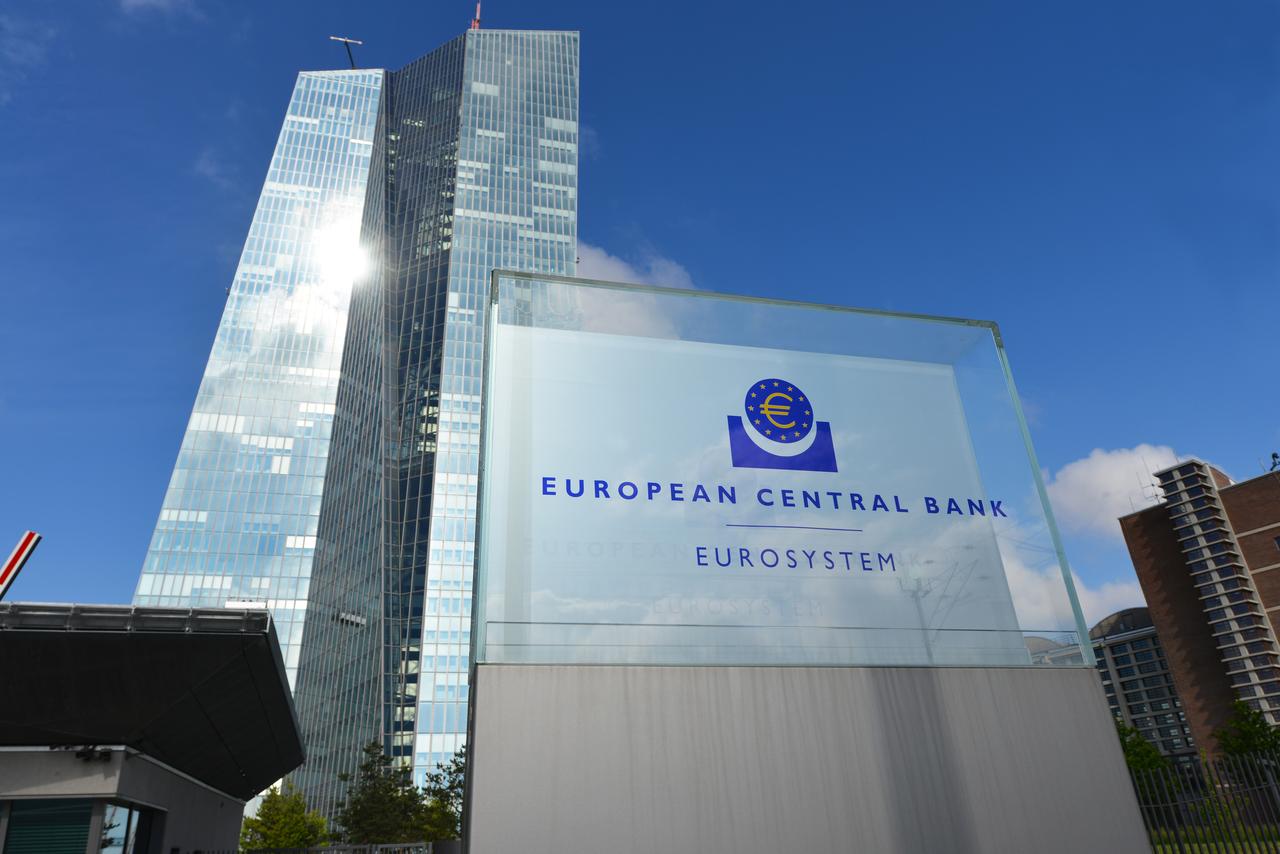
Eurozone inflation slightly accelerated to 2% in June, according to official data released Tuesday, aligning with both market expectations and the European Central Bank’s (ECB) inflation target.
The modest increase from May’s 1.9% reading stems primarily from a slower decline in energy prices. Eurostat, the European Union’s statistics agency, reported that energy costs dropped by 2.7% in June, compared to a sharper 3.6% fall the previous month.

Core inflation—excluding volatile categories such as energy, food, alcohol, and tobacco—remained stable at 2.3% in June. This measure is closely monitored by the ECB and was consistent with Bloomberg’s survey of economists.
Despite persistent geopolitical and supply chain uncertainties, headline inflation has significantly receded from its 10.6% peak in October 2022, a level reached shortly after the onset of the Russia-Ukraine conflict, which drove energy prices to record highs.
With price stability largely achieved, the ECB has pivoted its policy focus toward stimulating the eurozone’s flagging economic growth. Since June 2024, the bank has lowered interest rates eight times, aiming to reduce borrowing costs and revive investment and consumption across the bloc.
The ECB’s next monetary policy meeting is scheduled for July 24.
Within the euro area, national trends varied. Germany, the region’s largest economy, recorded a slight decrease in inflation, from 2.1% in May to 2% in June. In contrast, France saw an acceleration, with consumer prices rising 0.8% in June, up from 0.6% in May.

Despite recent gains in price stability, the Frankfurt-based ECB warned this week that inflation could become more volatile due to a range of global pressures, including trade disputes and advances in artificial intelligence.
“The inflation environment will remain uncertain and potentially more volatile ... posing challenges for the conduct of monetary policy,” the ECB stated.
The central bank also cited downward price pressures from ongoing tariff actions by U.S. President Donald Trump, which it expects to help keep inflation close to target levels in the coming months.